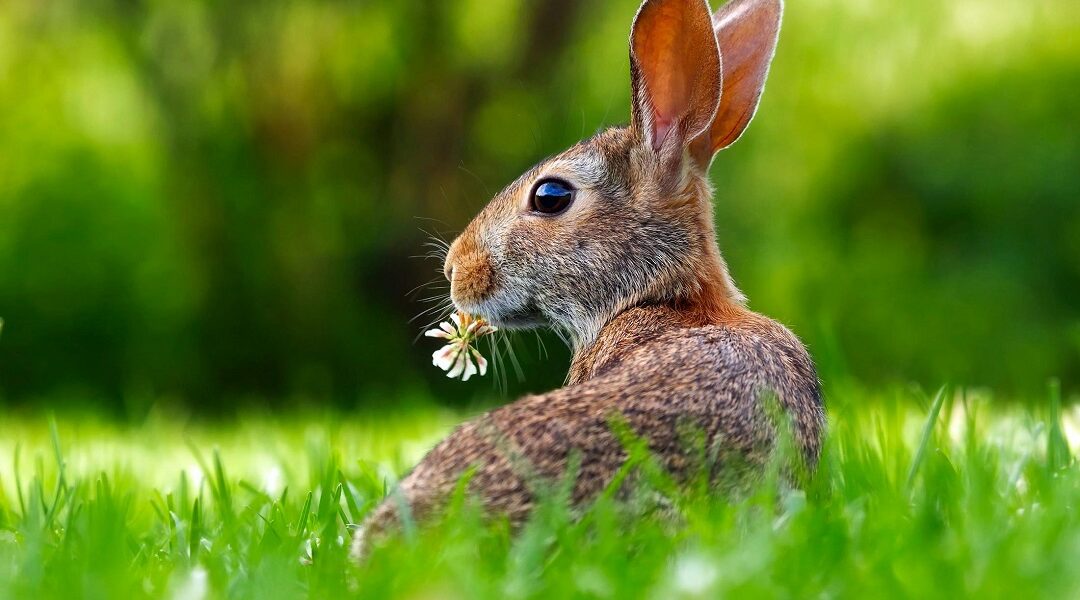When we think of food for rabbits , we often imagine vegetables and lots of carrots, right? But is this the best way to feed rabbits? Can Bunnies eat celery? Experts indicate that, in fact, the nutrition of these cute pets is more delicate than one might imagine.
So, you should know that our big-eared friends are big eaters and won’t turn down a bite, but not everything is good for their diet! However, to solve this issue once and for all, we have put together a list of 30 foods that can be used as rabbit food .
Bunnies and Celery
Celery’s Nutritious Value
A vegetable with few calories is celery. Vitamins A, C, and K are included in it. It contains fibre, potassium, and folate as well. Celery’s high water content can aid in keeping rabbits hydrated.
Advantages of Celery for Rabbit Hydration:
large amount of water content keeps rabbits well-hydrated.
Fibre: A rabbit’s digestive system needs fibre, which celery offers.
Minerals and vitamins: Celery is a good source of several nutrients.
Concerns About Giving Celery to Bunnies
Stringy Texture: Celery’s strings might impede digestion or present a choking hazard.
High Water Content: Digestion problems, such as diarrhoea, can result from consuming too much water.
Pesticides: There is a chance that celery contains pesticides. Washing it well is essential before giving it to the rabbits.
How to Give Bunnies Celery
- Getting Ready
- Cleaning: Give the celery a good wash to get rid of any dirt or pesticides.
- chopping: Dice the celery into tiny, manageable chunks. To avoid choking, remove the strings.
Overview of Diet - Begin Little: Add celery little by little and gradually. Keep an eye out for negative reactions in your bunny.
- Maintain a healthy balance by include celery in a diversified diet. Celery is not the only vegetable you should eat for nutrients.
Signs Of Adverse Reactions Of Celery For Sensitive Bunnies
- Issues with Digestion
- Diarrhoea: Cut back on the amount of celery your rabbit is fed, or stop feeding it entirely, if it starts to get diarrhoea after eating it.
- Bloating: Keep an eye out for symptoms of bloating, as they may signal digestive trouble.
Reactions Allergic to - Skin irritations: Introducing new foods to a bunny’s diet may cause skin irritations.
Changes in Behaviour: Your bunny may be responding to the celery if it appears drowsy or uneasy.
What is allowed to feed rabbits?
So now we know that we need to be careful about what rabbits eat. But are carrots and greens off-limits? So, what can rabbits eat ? According to exotic pet veterinarians, rabbits can eat vegetables.
But this is not the basis of their diet. According to experts, a rabbit’s diet can be quite varied. Check out the options that can be offered to your furry friend:
Portion
Food should make up the majority of their diet. Also known as extruded food, this product is made especially for long-eared cats. Offer it daily, at least 3 times a day.
Hay
It is essential to take care of your pet’s diet as it helps their digestive system. It should also be offered daily. As it has little nutritional value, there is no need to worry about portions: let your rabbit eat as much as he wants!
Vegetables
Vegetables can also be used as food for rabbits . For adult animals, it is best to eat vegetables every day. But be careful: not all vegetables are good for your furry friend’s health. Some contain substances that can be laxatives. It is best to look for vegetables with dark leaves, which tend to be safer.
Vegetables
Rabbits love vegetables, but they are not part of their daily diet. Since raw vegetables are more difficult to digest, they should be fed once every two days.
Fruits
They are also sensitive for our little friends, as they contain sugar and carbohydrates. They should be offered as snacks once or twice a week.
By following the recommendations above, you will ensure great nutrition for your big-eared dog, as well as taking good care of him ! And remember: before serving any food to your pet, it is necessary to clean the food well to avoid contamination.
Natural Rabbit Diet
Rabbits are strictly herbivores . In the wild, they spend their days grazing in meadows.
Their diet therefore includes grass, herbs, leaves, as well as vegetables and tree bark . This is a low-calorie food, so it must be consumed in large quantities to meet the body’s needs.
30 foods allowed for rabbits:
Following Vegetables allowed every day!
- Arugula: rabbits love the bitter and spicy flavor of arugula.
2. Chicory: another strong-tasting vegetable that rabbits love and is allowed!
3. Kale: only offer it raw and without seasoning.
4. Swiss chard: should also be served raw, without any seasoning.
5. Escarole: a dark leaf that rabbits love, it is also good for their health.
6. Chicory: another strong-tasting leaf that rabbits love!
7. Carrot stalks and leaves: carrots may not be so good, but their stalks and leaves are excellent for rabbits!
8. Radish stalks and leaves: rabbits love them and are allowed!
9. Cauliflower leaves: in addition to being good for rabbits, this is a part that usually goes to waste. Good chance to take advantage of it!
10. Basil: who doesn’t love this delicious seasoning? Basil is also allowed for rabbits.
Vegetables and other greens for rabbits
- Broccoli leaves: avoid giving your pet the stalks, as they can cause gas in your pet.
12. Carrots: occasionally, rabbits can eat carrots!
13. Beets: should be offered raw and always without seasoning. Leave the leaves out of the diet, as some substances can cause intestinal discomfort.
14. Bell peppers: all colors are allowed for rabbits, but avoid giving them seeds. Don’t forget to wash the bell peppers well, including the inside of the vegetable.
15. Celery: also known as celery, is a vegetable much appreciated by the big-eared ones!
16. Coriander: this somewhat controversial seasoning is one of rabbits’ favorites.
17. Spinach: everyone knows the benefits of spinach, right? Lucky for rabbits who can also eat this delicacy!
18. Zucchini: it is allowed if offered in moderation. If you prefer, give only the peel, well cleaned.
19. Cabbage: rabbits love it, but it can cause gas. So offer it in moderation.
20. Eggplant: if offered in moderation, eggplant is also okay for rabbits!
Feeding Rabbits
No one can resist the little nose and fluffy fur of a rabbit, the domestic rabbit Oryctolagus cuniculus, belonging to the Leporidae family and order Lagomorpha, exists in a large number of breeds and is increasingly a cherished animal in our homes.
Unfortunately, the pathologies associated with these furry animals are caused by poor environmental and dietary management due to lack of knowledge on the part of their owners, namely: recurrent dental problems (tooth overgrowth, abscesses, osteomyelitis, etc.), intestinal problems (intestinal stasis, intestinal obstruction, diarrhea, etc.) and skin problems (pododermatitis, etc.). For this reason, we are going to demystify and explain what the diet of these little ones consists of .
Importance of Fiber in the Diet
forage that rabbits consume in the wild is rich in fiber . Fiber plays an extremely important role in the functioning of the rabbit’s digestive system – it is the main source of energy for the bacteria that live in the intestines, which are responsible for assimilating substances from plants that are difficult to digest. Fiber also allows the rapid movement of food contents along the intestines and facilitates hydration. Celery have some important fibers, so, the answer for Can bunnies eat celery? Is Yes…
Suitable Food Types
The basis of the ideal diet is hay (different types of dried grass). It should be provided ad libitum.
It is preferable to place it in a trough, so that it does not become part of the bedding . In addition to hay, it is recommended to regularly offer the animal tree branches, dried grass or leaves , in quantities and frequency depending on the type of plant. If the rabbit leaves part of the hay portion that has been given to it, it should be changed daily, as the probability of it consuming it is low.
Second in the rabbit’s diet is vegetation , that is, fresh grass, whole plants (herbs, flowers) and their parts (leaves, shoots), which are not vegetables or fruits . Examples:
• Flowers (leaves and inflorescences): carnation, aster, pansy, cornflower, chrysanthemum, carnation, sweet pea, tobacco flower, mallow, lunar, marigold, nasturtium, forget-me-not, borage, roses, galega, sunflower, daisy, shrub chrysanthemum;
• Shoots ;
• Leaves and shoots of fruit trees and shrubs : currant, aronia, peach, raspberry, pear, apple, blueberry, blackberry, plum, cherry;
• Leaves and shoots of deciduous trees : bamboo, warty birch, maple, linden, mulberry, alder, poplar, willow;
• Leafy vegetables : broccoli, beetroot, courgette, cauliflower, kohlrabi, beet greens, carrots, parsnips, parsley, radishes, celery;
• Herbs and wild plants : plantain (narrow and broad), cornflower, chicory, field violet and tricolor violet, chickweed, juniper, nettle, coronula, yarrow, alfalfa, field mint, dandelion, marigold, thistle, potentilla, coltsfoot, common nettle, watercress, chamomile, horsetail (brown and green shoots), senecio, field daisy, meadowsweet;
• Herbs : basil, coriander, lavender, lovage, mint, lemon balm, rosemary, sage;
• Cereals (not grains): all green parts of plants
Foods that Bunnies have to Avoid
Beets, pumpkin and carrots, as vegetables with a high carbohydrate content , should be offered no more than 3 times a week in small quantities .
Vegetables that stimulate the production of large amounts of gas in the digestive tract (such as cabbage, broccoli, cauliflower and Brussels sprouts) should be offered in small quantities.
It is not recommended to give onions, garlic, peppers and potatoes, as well as lettuce.
Examples: eggplant, beet greens, broccoli, Brussels sprouts, beetroot, chicory, courgette, pumpkin, cabbage, cauliflower, kohlrabi, Chinese cabbage, pak-choi cabbage, artichokes, fennel, corn, alfalfa, carrots, cucumber, peppers, parsnips, parsley, tomatoes, turnips, radishes, arugula, lamb’s lettuce, celery, asparagus, spinach.
Due to the higher content of simple sugars in dry matter, dried fruits , as well as seeds, nuts and almonds (unsalted, uncoated and unbreaded), due to their fat content, should be offered as occasional treats . It is important to remember that, if accidentally ingested without being crushed , they can cause obstruction of the digestive tract .
Examples: dried fruits, sunflower seeds, flaxseed, sesame, almonds, pumpkin seeds, all nuts.
The Commercial Feed Reviews
Commercial feed is available in two forms:
– Avoid multi-component mixes: Determining the exact quantity of each nutrient, energy, vitamin, and mineral per unit of mass is difficult. These mixes often have incorrect proportions (too many carbohydrates and fat, too little fiber) and fail to meet the animals’ needs. Additionally, animals tend to selectively consume the tastiest elements of the mix.
– Use homogeneous granules, called pellets: These feeds have a balanced composition. Pellet versions cater to animals in different age groups, considering the needs of growing, adult, or senior organisms.
– Do not give cereal bars, drops, snacks, and other similar products: These are contraindicated. Calcium blocks upset the balance of calcium and phosphorus.
Fresh Water Supply
Water for your rabbit should always be available (in a water bowl attached to the wall of the cage or in a bowl). It is important that it is changed frequently and that the water bowl/drinker is kept clean. Water consumption may vary depending on the temperature, humidity, the amount of wet food in the diet, during illness or in stressful situations. It is always important to pay attention to the amount of water your rabbit drinks .
Care for feeding your rabbit
Due to the sensitivity of rabbits’ intestines, an excessive amount of cucumber and other foods can cause damage to the digestive system, as well as discomfort and gas. Therefore, it is essential to follow some recommendations when adding cucumber to your pet’s diet.
- Introduce gradually: Just like any other food, introduce cucumber into your rabbit’s routine gradually and in small quantities to avoid intestinal problems.
- Respect the rabbit’s age: Give the correct quantities and cuts at the appropriate age (normally from the fourth month of life) to avoid complications for your rabbit. Consult a veterinarian to introduce food.
- Fresh, well-washed cucumbers: offer cucumbers that are free from damage, mold, and are fresh. Also, prefer organic cucumbers that growers have not treated with chemicals.
FAQ: Can Bunnies Eat Celery?
1. Can bunnies eat celery?
Yes, bunnies can eat celery in moderation. Wash it thoroughly, chop it into small pieces, and remove the strings to prevent choking.
2. How much celery can I give my bunny?
Give celery as an occasional treat, not as a staple in their diet.. Offer small amounts once or twice a week.
3. Is celery safe for all bunnies?
Most bunnies can eat celery safely, but it’s important to introduce it slowly and watch for any adverse reactions, such as digestive issues or allergic reactions.
4. What are the benefits of feeding celery to bunnies?
Celery provides hydration due to its high water content, fiber for digestive health, and vitamins and minerals like vitamins A, C, and K, and potassium.
5. What are the risks of feeding celery to bunnies?
The stringy texture of celery can pose a choking hazard or cause digestive blockages. Its high water content can also lead to diarrhea if given in excess.




